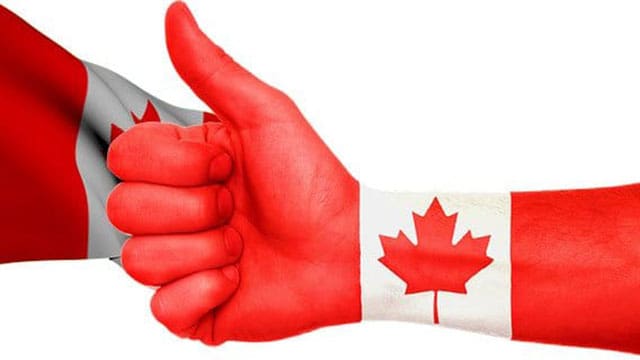The time for feel-good sloganeering is over: Canada needs a hard-nosed, Canada First approach

For interview requests, click here
Only a month into his presidency, U.S. President Donald Trump has been overturning foreign policy tables everywhere, offering dramatic glimpses of a potential new global reality. Pulling back from the Ukraine war and European security commitments, reducing great power defence budgets by half, and cutting nuclear arsenals are among his latest dramatic pronouncements.
Meanwhile, on the North American continent, his threats of 25 per cent import tariffs continue to hang over Canada and Mexico as he attempts to reformulate trilateral trade to America’s advantage.
Clearly, he is thinking in revolutionary terms and intends to apply his deliberately mercurial negotiating tactics to friend and foe alike. For foreign policy practitioners, it’s a reminder of Charles de Gaulle’s maxim that “no nation has friends, only interests.”
That’s a tough lesson for Canada. In a deeply cleaved country that must be governed more or less from the centre by whichever party forms the government, Trumpian radicalism doesn’t work. In fact, fundamental change often relies on outside pressure—a notion that hints at potential opportunity now.
 Canada’s foreign policy delusions end with Trump’s America First doctrine. |
| Recommended |
| The truth behind Canada’s organized crime epidemic
|
| Trump’s trade war is a wake-up call for Canada
|
| Canada must resist the lure of protectionism, even as U.S. tariffs loom
|
Ronald Reagan’s 1980 presidential campaign proposal for a North American free-trade agreement was fiercely resisted by many in Canada before eventually becoming the bedrock of the country’s economy. That applies more generally to Canadian foreign policy, which is firmly locked in U.S. handcuffs, albeit with arms behind our backs, pretending otherwise.
Our predicament now is what to do when America suddenly and shockingly changes the narrative. No Canadian leader would advocate fundamental divergence from U.S. foreign policy. We’re not about to exit the U.S.-Mexico-Canada Agreement (USMCA) or join the BRICS group of countries.
Yet no crisis should ever go to waste. Trump has already united Canadians in a frenzy of patriotism. Booing the U.S. national anthem at sports events is unpleasant evidence of that. A more constructive first step would be to understand that his moves are rational within his America First worldview.
Approaching US$37 trillion in debt, America cannot afford the status quo. His tariff threats are clearly an attempt to force countries to drop their trade barriers and take responsibility for their own security. Equally, lobbying for exemptions is absolutely within Canada’s vital national interest in the immediate term.
But Canada also needs to come up with a broader playbook. When we reviewed our foreign policy from 1999 to 2003—(disclosure: I was foreign policy director at Foreign Affairs Canada from 1999 to 2003)—we recommended two moves that are as valid today as they were then.
First, admit outright that the U.S. is the very centre of our foreign policy rather than pretending otherwise. Second, prioritize bilateral over multilateral relations, with priority countries being the G7 (or G8 when Russia was in the club), plus Mexico, Brazil, China and India.
While both ideas seem benign, they have significant implications. Putting the U.S. openly front and centre means dodging the nonsensical “51st state” rhetoric by getting on board with those parts of the Trump agenda that suit our interests.
It means meeting, if not exceeding, his demands on border security exactly as we did following 9/11 with our $7.7-billion emergency federal budget. More challenging, it means signalling a willingness to put our own protectionist trade measures on the table, both external and internal, in an early renegotiation of the USMCA.
That’s a real challenge for national unity, but if there was ever an opportunity to liberalize, it’s now. As for increased military spending, Canada should prioritize addressing critical gaps in domestic and continental defence instead of allocating military resources, funding, and commitments toward European defence initiatives—a shift that aligns with Trump’s position.
The second idea, emphasizing bilateralism over multilateralism, is the best hope for greater diversification. It means dropping well-meaning sloganeering such as “feminist foreign policy” in favour of doggedly pursuing our economic interests in foreign markets.
Canada’s economic success comes down to companies signing export contracts and investors putting their money and jobs into Canada. To succeed now, we need to keep pace with the U.S. on eliminating regulatory and tax barriers. We also need to build the infrastructure necessary to export our products overseas.
Boosting our excellent trade commissioner services in target countries and increasing domestic supports for exporters would help, too.
If our foreign policy has to be filtered through any one multilateral lens, let it be peace support, which resonates with our mythical heritage. Taking a page from the Trump playbook, why not a policy of “no aid for foreign wars not threatening Canada’s direct interests”?
Focusing our limited development resources on peace support and humanitarian aid, food, water, shelter and medicine rather than on social projects would follow.
If the Trump presidency really poses the crisis that’s being widely depicted, Canada needs to stop taking it personally, quickly find those initiatives that suit our interests, and run with them in our own Canada First strategy.
Randolph Mank is a former Canadian diplomat and business executive. He currently heads MankGlobal consulting, serves on boards, and is a Fellow of the Canadian Global Affairs Institute, the Triple Helix Partnership for Defence Innovation, and the Balsillie School of International Affairs.
Explore more on Canada-U.S. relations, Trade, International relations, Military
The views, opinions, and positions expressed by our columnists and contributors are solely their own and do not necessarily reflect those of our publication.
Troy Media is dedicated to empowering Canadian community news outlets by providing independent, insightful analysis and commentary. Our mission is to support local media in fostering an informed and engaged public by delivering reliable content that strengthens community connections, enriches national conversations, and helps Canadians better understand one another.
